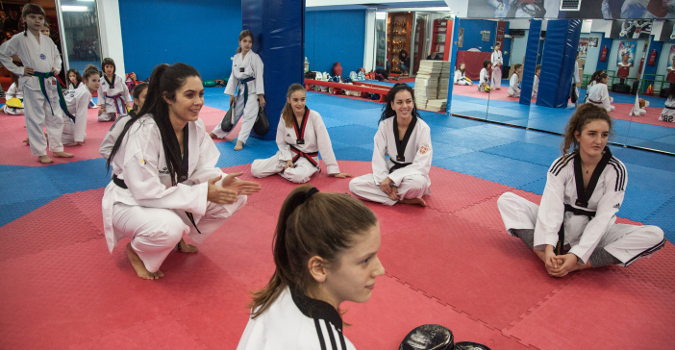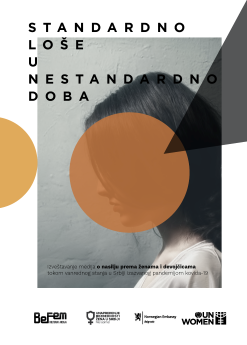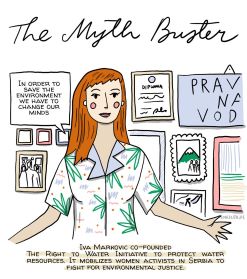
Photo: UN Women Europe and Central Asia/Rena Effendi
A land-locked central Balkans country of 7 million, Serbia is a signatory to important binding international documents that guarantee the equality of men and women and prohibit gender-based discrimination. These include the: Council of Europe’s Social Charter; European Convention on Human Rights; UN Convention on Civil and Political Rights; Council of Europe Convention on preventing and combating violence against women and domestic violence (the Istanbul Convention); and the United Nations Convention on the Elimination of All Forms of Discrimination against Women (CEDAW).
The Constitution of Serbia, adopted in 2006, endorses equality for women and men, mandates equal opportunities policies, and prohibits direct and indirect discrimination, including discrimination based on sex, gender identity, sexual orientation, marital and family status.
In 2021, Serbia adopted a new Law on Gender Equality, the umbrella law in the field of protection of women's rights; the Law on Amendments to the Law on Prohibition of Discrimination; the Strategy for Preventing and Combating Gender-Based Violence and Domestic Violence for 2021 - 2025; and a new national Strategy for Gender Equality.
Despite the laws and policies promoting gender equality, women are under-represented in decision-making in all spheres of Serbia's social, economic, and political life.
Studies have found that half of women in Serbia have experienced domestic violence, and that women and Roma are most subject to discrimination. Discrimination and structural barriers lead to a gender pay gap and significantly lower labour force participation rates among women. Women also spend twice as much time as men in unpaid care work in the household.
Since 2006, the UN Women Programme Office in Serbia has supported national partners to meet Serbia’s national and international commitments on gender equality, particularly CEDAW and the National Strategy on Gender Equality and Improving the Status of Women.
UN Women in Serbia focuses on these areas fundamental to advancing equality for women and men and forging progress for all:
UN Women also chairs the UN Country Team Gender Theme Group for coordination, information sharing and joint actions of the UN in gender equality.



